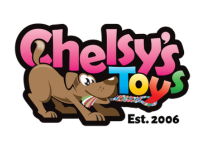The human food and treats you give your dog are important. However, what is tasty and healthy for you may not be the same for your beloved furry friend.
What human foods are best for dogs
Feeding your dog some human foods can be a healthy alternative to some prepared dog foods and treats. While convenient and cost-effective, high-quality human food should contain protein, vitamin E, and healthy fats to help your dog stay full and active.
Carrots: Eating carrots can help remove plaque from their teeth and improve their dental health. Carrots also contain Vitamin A, which is good for a dog's immune system, skin, and coat.
Apples: Apples are an excellent source of vitamins A and C and fiber, which can help control a dog's digestive system. However, eating rotten apples can result in alcohol poisoning in dogs.
Peanut Butter: Peanut butter is safe for dogs to consume in moderation, provided it is unsalted and contains no added sugar or sweeteners. It contains proteins, healthy fats, vitamins E and B, niacin, and other essential nutrients. Be sure to check the label, as xylitol is a sweetener that can be toxic to dogs.
Plain Popcorn: Plain popcorn, free of salt, butter, or sugar, can be a nutritious treat for dogs. It consists of minerals such as magnesium, phosphorus, and zinc, which are critical for canine health. Additionally, plain popcorn contains vitamins A, B, C, D, E, and K, as well as fiber. Be careful not to feed unpopped kernels to your dog as they may choke.
Blueberries: The health benefits of eating blueberries include fiber, antioxidants, and phytochemicals.
Cucumber: Cucumbers are an ideal, low-calorie snack for dogs and may be a good choice for overweight dogs. Cucumbers also contain plenty of vitamins and minerals, including vitamin K.
Green Beans: Plain green beans are a healthy, nutritionally rich snack. They are a protein source and contain calcium, iron, and vitamin K. To avoid choking, chop the beans beforehand and season them to taste.
Watermelon: Watermelon is safe for dogs to eat, but removing all the seeds first is important, as these can block the intestines. In addition, chewing on the rind can cause an upset stomach. Watermelon is also a good source of vitamins A, C, and B6 and has high water content.
What human foods are dangerous for dogs
While there may be many healthful options in our picnic baskets and refrigerators for our fur babies, many human foods are harmful to dogs. Here are just a few to take note of:
Grapes/raisins: Grapes, raisins, sultanas, and currants are toxic and can cause kidney failure and death in dogs.
Avocado's: Dogs are vulnerable to persin, an avocado toxicant that causes vomiting and diarrhea.
Cherries: Cherry pits contain cyanide, which is poisonous to dogs. Also, cheery pits can block the intestines.
Chocolate/Coffee/Caffeine: Never give your dog chocolate, coffee, or anything containing caffeine. These substances are extremely harmful to dogs and can result in vomiting, an accelerated heartbeat, seizures, and even death.
Coconut: Giving a dog too much coconut oil or flesh can make them sick due to the high potassium levels. The same goes for coconut water as well.
Summary
Dogs are curious, mission-driven animals that require constant monitoring. While it is important to feed your dog healthful, balanced, and well-rounded meals, they also need exercise, variety, and socialization. Our Snuffle Bag and Snack Snuffle's are perfect for integrating human food treats and engagement/play/feeding time. Fill any of our snuffle's with plain popcorn, carrot pieces, or blueberries for a fun, engaging exercise for your furry friend. To learn more about our snuffles, read more about them here.


1 comment
This is a very helpful guide My fur baby loves avocado dip and he also loves raisins dipped in yogurt but I guess since they’re bad for him I going to have to cut him off…💛💜🤗🐾🐾